だれかがいつかこんなことを書くのではないかと思っていたら、やはり「ニューヨーク・タイムズ」にこのような記事が寄稿されました。金正日を昭和天皇になぞらえる論文です。やれやれ。
対訳はつけませんが、英語に自信のある方は、目を通してください。ゴウ先生の意見は後ほど披露させていただきます。
**********
October 12, 2006
Op-Ed Contributor
Kim Jong-il’s Suicide Watch
By B. R. MYERS
Seoul, South Korea
HOURS after Monday’s nuclear test, President Bush issued a stern warning to North Korea — but only against the passing of nuclear technology to other states or non-state entities. The president’s declaration thus reflected a confident consensus in Washington that while Kim Jong-il may try selling his nukes, he would never dream of using them himself. Why not? The explanation was given by a former national security adviser, Donald Gregg, on Monday: “Don’t panic. Kim Jong-il’s objective is survival ... not suicide.”
The same soothing logic could be applied to President Mahmoud Ahmadinejad of Iran, but of course it won’t be. These long-term diagnoses of Mr. Kim’s psyche are a roundabout way of saying that because he is not a fundamentalist Muslim, he is unlikely to do anything really crazy.
This sort of cultural profiling, however, can get us into real danger. Japan’s emperor during World War II, Hirohito, was neither religious nor suicidal, and he led his nation into a war that no rational leader could have hoped to win. The point is relevant, because although journalists persist in calling North Korea a Stalinist state, its worldview is far closer to that of fascist Japan.
Like the Japanese in the 1930’s, the North Koreans trace the origins of their race back thousands of years to a single progenitor, and claim that this pure bloodline makes them uniquely virtuous. The country’s mass games — government-choreographed spectacles with a cast of more than 100,000 — are often mistaken by foreign journalists as exercises in Stalinism. They are in fact celebrations of ethnic homogeneity. “No masses in the world,” the state-run Cheollima magazine reminded readers in 2005, “are purer and more upright than our masses.”
In state propaganda, Kim Jong-il is often linked, as Hirohito once was, to images of white horses, snow-capped mountain peaks and other symbols of racial purity. South Korea, on the other hand, is regarded as contaminated by too close contact with other races. At a recent meeting between generals from both Koreas, the North delegation’s leader condemned the South for allowing racial intermarriage. “Not a single drop of ink,” he intoned, “must be allowed to fall into the Han River.”
Naturally enough, the North Koreans’ race theory, like that of the Japanese fascists, actuates a blithe indifference to international law. A uniquely virtuous people has no reason to obey its moral inferiors, be they allies or enemies. China has now learned that despite decades of military and economic assistance it can draw on no residue of good will in dealing with Pyongyang.
Neither can the South Koreans, whom the North Koreans will revile for their ethnic treason no matter how much cash they pump northward. This utter imperviousness to gestures of friendship and conciliation bears obvious implications for the prospect of normal relations between North Korea and America.
The northern regime has so far restricted its racial propaganda to the home audience, because it wants the world to go on misperceiving it as a Stalinist state. This way we continue to pin our hopes on the kind of trust-building dialogue that worked so well with Communists in the 1980’s — and failed so disastrously with the pure-race crowd a half-century earlier.
While the North Koreans could kill a lot of people, they do not pose as great a threat to world security as imperial Japan did. Never have they shown any interest in forging an empire. All the same, the irrationality of their worldview is such that we should, at the very least, stop assuming that they would never use their own weaponry.
While Kim may not be suicidal himself, he shares Hirohito’s penchant for encouraging this quality in his people: “Defense until Death” is an increasingly popular slogan. In 2003 a colorful poster was disseminated to the foreign press showing a fat missile in flight with a suicide-readiness slogan on it: “Yankee, take a good hard look.” That isn’t bad advice.
B. R. Myers, an associate professor of North Korean studies at Korea University, is the author of “Han Sorya and North Korean Literature.”
**********
この「金正日の自殺警報」と題した記事。昭和天皇と金正日の表面上の類似点だけを羅列して論じています。白馬に乗って登場した歴史上の君主は、世界で昭和天皇だけではないのに。
まして、1930年代の日本を一方的に現代の北朝鮮のでたらめぶりと比べられても困ります。北朝鮮は建国以来50年以上、国民に豊かな生活をもたらすことはできていません。彼の国のGDPの低さを見ればそれは一目瞭然です。
しかし、1930年代の日本は、欧米列強に近づく先進国の仲間入りができるほどの工業国でした。それがファシストの国のできることでしょうか。
確かに、70年も前の話ですから、人権その他現在の基準から見ればおかしな点もあります。しかし、それは欧米列強も同じこと。
ゆえに、この記事は、現在の北朝鮮と70年前の日本を同列に扱うことで、欧米のリベラリストの読者に北朝鮮ならびに韓国の立場を美化しようという意図が透けて見える論文なのです。
筆者がどのような思想背景を持っているか知りませんが、こういう記事が書かれることによって、日本の天皇家の万系一世の伝統とここ60年で無理やりでっち上げた金日成・金正日親子の独裁体制とを同列で論じる人が世界で増えるかと思うと無念でなりません。
こういう怪しげな論理を振り回す人々と伍して戦い、日本の国益を守る発言を堂々とできる若者の成長を強く願う次第です。ゆえに、歴史と英語、しっかりと勉強してください。
当英語塾INDECは、そうした意思と夢と希望をもった若者を応援します!
公式サイト: http://indec.jp
対訳はつけませんが、英語に自信のある方は、目を通してください。ゴウ先生の意見は後ほど披露させていただきます。
**********
October 12, 2006
Op-Ed Contributor
Kim Jong-il’s Suicide Watch
By B. R. MYERS
Seoul, South Korea
HOURS after Monday’s nuclear test, President Bush issued a stern warning to North Korea — but only against the passing of nuclear technology to other states or non-state entities. The president’s declaration thus reflected a confident consensus in Washington that while Kim Jong-il may try selling his nukes, he would never dream of using them himself. Why not? The explanation was given by a former national security adviser, Donald Gregg, on Monday: “Don’t panic. Kim Jong-il’s objective is survival ... not suicide.”
The same soothing logic could be applied to President Mahmoud Ahmadinejad of Iran, but of course it won’t be. These long-term diagnoses of Mr. Kim’s psyche are a roundabout way of saying that because he is not a fundamentalist Muslim, he is unlikely to do anything really crazy.
This sort of cultural profiling, however, can get us into real danger. Japan’s emperor during World War II, Hirohito, was neither religious nor suicidal, and he led his nation into a war that no rational leader could have hoped to win. The point is relevant, because although journalists persist in calling North Korea a Stalinist state, its worldview is far closer to that of fascist Japan.
Like the Japanese in the 1930’s, the North Koreans trace the origins of their race back thousands of years to a single progenitor, and claim that this pure bloodline makes them uniquely virtuous. The country’s mass games — government-choreographed spectacles with a cast of more than 100,000 — are often mistaken by foreign journalists as exercises in Stalinism. They are in fact celebrations of ethnic homogeneity. “No masses in the world,” the state-run Cheollima magazine reminded readers in 2005, “are purer and more upright than our masses.”
In state propaganda, Kim Jong-il is often linked, as Hirohito once was, to images of white horses, snow-capped mountain peaks and other symbols of racial purity. South Korea, on the other hand, is regarded as contaminated by too close contact with other races. At a recent meeting between generals from both Koreas, the North delegation’s leader condemned the South for allowing racial intermarriage. “Not a single drop of ink,” he intoned, “must be allowed to fall into the Han River.”
Naturally enough, the North Koreans’ race theory, like that of the Japanese fascists, actuates a blithe indifference to international law. A uniquely virtuous people has no reason to obey its moral inferiors, be they allies or enemies. China has now learned that despite decades of military and economic assistance it can draw on no residue of good will in dealing with Pyongyang.
Neither can the South Koreans, whom the North Koreans will revile for their ethnic treason no matter how much cash they pump northward. This utter imperviousness to gestures of friendship and conciliation bears obvious implications for the prospect of normal relations between North Korea and America.
The northern regime has so far restricted its racial propaganda to the home audience, because it wants the world to go on misperceiving it as a Stalinist state. This way we continue to pin our hopes on the kind of trust-building dialogue that worked so well with Communists in the 1980’s — and failed so disastrously with the pure-race crowd a half-century earlier.
While the North Koreans could kill a lot of people, they do not pose as great a threat to world security as imperial Japan did. Never have they shown any interest in forging an empire. All the same, the irrationality of their worldview is such that we should, at the very least, stop assuming that they would never use their own weaponry.
While Kim may not be suicidal himself, he shares Hirohito’s penchant for encouraging this quality in his people: “Defense until Death” is an increasingly popular slogan. In 2003 a colorful poster was disseminated to the foreign press showing a fat missile in flight with a suicide-readiness slogan on it: “Yankee, take a good hard look.” That isn’t bad advice.
B. R. Myers, an associate professor of North Korean studies at Korea University, is the author of “Han Sorya and North Korean Literature.”
**********
この「金正日の自殺警報」と題した記事。昭和天皇と金正日の表面上の類似点だけを羅列して論じています。白馬に乗って登場した歴史上の君主は、世界で昭和天皇だけではないのに。
まして、1930年代の日本を一方的に現代の北朝鮮のでたらめぶりと比べられても困ります。北朝鮮は建国以来50年以上、国民に豊かな生活をもたらすことはできていません。彼の国のGDPの低さを見ればそれは一目瞭然です。
しかし、1930年代の日本は、欧米列強に近づく先進国の仲間入りができるほどの工業国でした。それがファシストの国のできることでしょうか。
確かに、70年も前の話ですから、人権その他現在の基準から見ればおかしな点もあります。しかし、それは欧米列強も同じこと。
ゆえに、この記事は、現在の北朝鮮と70年前の日本を同列に扱うことで、欧米のリベラリストの読者に北朝鮮ならびに韓国の立場を美化しようという意図が透けて見える論文なのです。
筆者がどのような思想背景を持っているか知りませんが、こういう記事が書かれることによって、日本の天皇家の万系一世の伝統とここ60年で無理やりでっち上げた金日成・金正日親子の独裁体制とを同列で論じる人が世界で増えるかと思うと無念でなりません。
こういう怪しげな論理を振り回す人々と伍して戦い、日本の国益を守る発言を堂々とできる若者の成長を強く願う次第です。ゆえに、歴史と英語、しっかりと勉強してください。
当英語塾INDECは、そうした意思と夢と希望をもった若者を応援します!
公式サイト: http://indec.jp











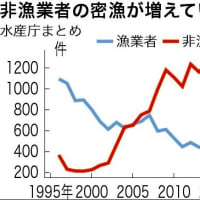

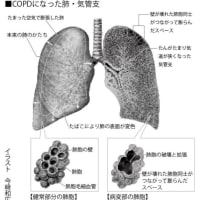
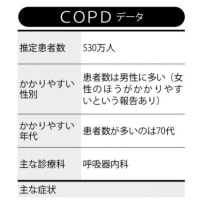
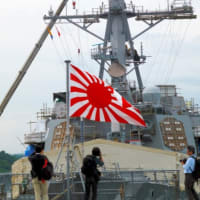



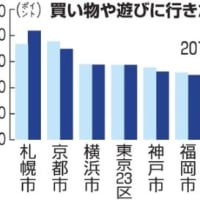
※コメント投稿者のブログIDはブログ作成者のみに通知されます